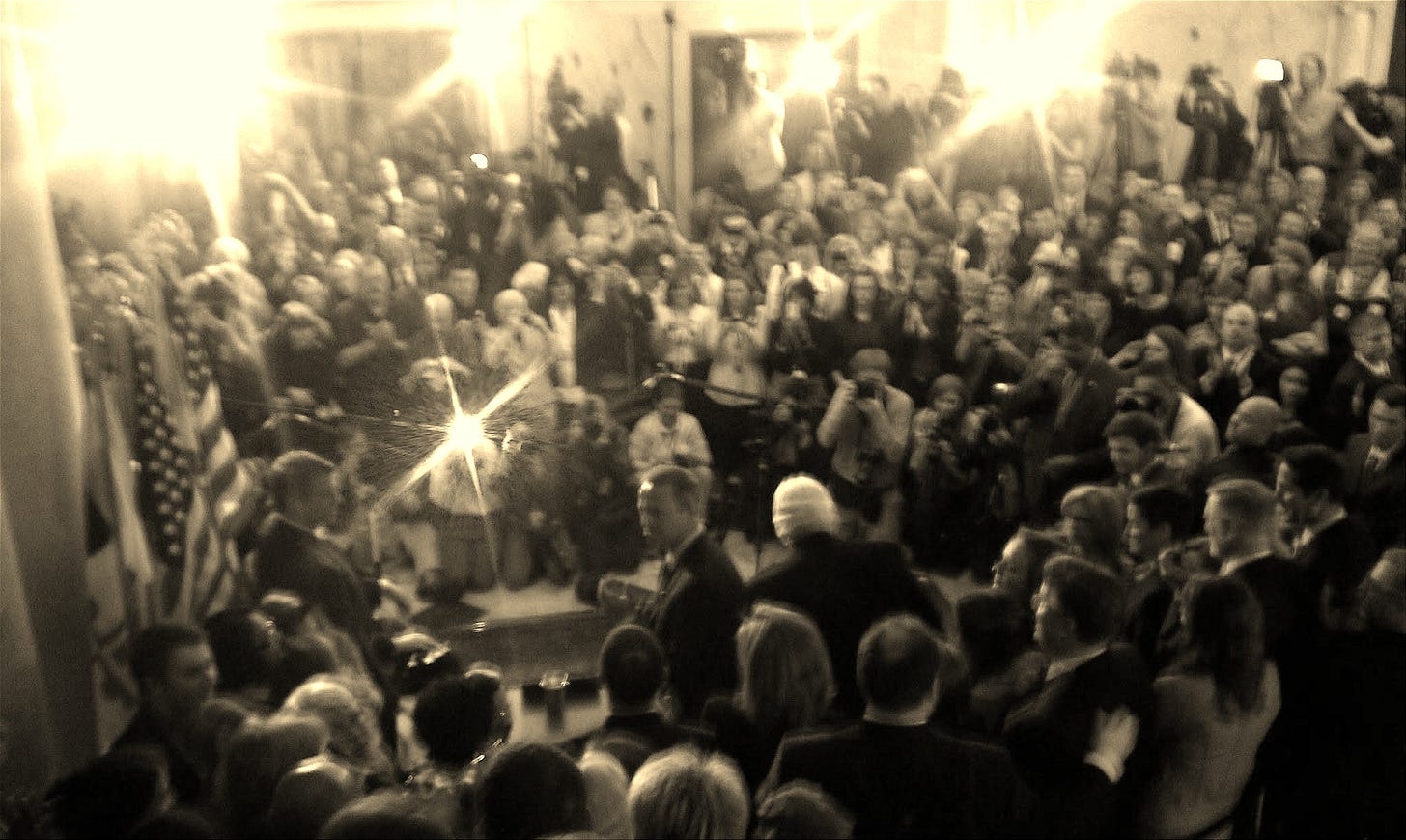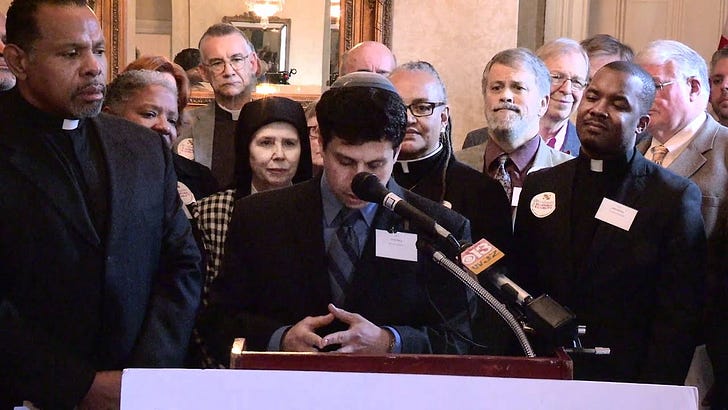Our “I Can’t be Bothered” Moment
Working toward better outcomes means choosing (the right) path of inevitability
In 2015, the year the constitutional right to marriage for same-sex couples was established by the Supreme Court, columnist Adam Gopnik suggested it was a moment inspired by the thinking of Victorian era British novelist, Anthony Trollope. The fight for marriage equality, Gopnik wrote for The New Yorker, was an example of how “Trollope’s idea of how political reform happens: an impossible idea becomes possible, then becomes necessary, and then all but a handful of diehards accept its inevitability.”
Here’s me in Annapolis back in 2012 speaking out in favor of Marriage Equality:

Whether the inevitability of legal same-sex marriage will last given recent developments, sadly I don’t know. But I wonder, in this era dominated by bluster and grievance, to what extent must we begin to apply Trollope’s framework not to the achievements of greater inclusion, but the vanquishing of those achievements. The impossible, overturning Roe v. Wade, the gutting of essential agencies, the backsliding on decades of civil rights advancement – these have become manifestly possible and are viewed by some, perhaps many, as inevitable. We Americans are the poorer for it.
Against this backdrop, it may seem almost insignificant that Google calendar recently opted to remove many holiday observances from its default calendar, but there’s a throughline here. Users began to notice the change in February (though it appears to have gone into effect last year) because that was also the month Google maps adopted President Trump’s executive order renaming the body of water between the US and Mexico not the Gulf of Mexico but the Gulf of America. This is disappointing, but whether Google ought to have done differently isn’t my point. I simply want us to notice the march of progress, the steady drumbeat of the possible.
The poet Dana Gioia writes, “The world does not need words. It articulates itself in sunlight, leaves, and shadows. The stones on the path are no less real for lying uncatalogued and uncounted…. Yet the stones remain less real to those who cannot name them…. To name is to know and remember.”
This is true when people lovingly bestow names on their children, or when Abraham names the newly created animals in Genesis 2 (v. 20). But to name can also be to claim or sublimate, and this is clearly what animates the insistence on America over Mexico or McKinley over Denali.

Despite spring’s budding leaves, now feels like the winter of our American discontent, this widespread insistence on the avoidance of unfamiliar words, traditions, stories, and names. Here are a few observances that were removed from Google’s default calendar: Jewish American Heritage Month, Hispanic Heritage Month, Pride, Black History Month and Women’s History Month. Also, Holocaust Remembrance Day. Google says you can still opt-in, but many will not, so a far fewer number of people will learn about other peoples, other cultures, other traditions.
My parents, long before smart phones and cloud calendars, opted for a different path than their childhood friends and neighbors, and my life has been all the richer for it. Having grown up in a homogeneous Chicago Jewish community, they elected to raise their children in a diverse Northwest suburb. Growing up, my friends were Jews but also children of South Asian and Eastern European immigrants.
Our high school boasted students from dozens of countries speaking many different languages. A highlight each year was Maine East High School’s World Culture’s Day where students enjoyed various ethnic foods, donned distinctive clothing, performed a range of native folk dances, and, yes, learned about each other’s holidays. America for me was thicker, more colorful, and, yes, more complicated than it would have been if we had lived elsewhere. Having Diwali or Ramadan show up in your calendar doesn’t do the relational work of encounter, of curiosity, of cultural exchange, but it’s a start.
Next month we Jews celebrate Passover, z’man cheruteinu, the time of our liberation. Many non-Jews will know that Passover is in spring and that it’s somewhere near Easter, but many will not. Fewer still will learn that April is also Arab American Heritage Month and National Poetry Month among other things. By having to opt-in to every new occasion or observance, we run the risk of slipping quickly from impossible, to possible to ignore, then necessary to avoid, and finally inevitable to insist that I can’t be bothered.
But knowing when Passover falls, is it that much of a bother?
A version of this post will appear in the April issue of Jmore.




